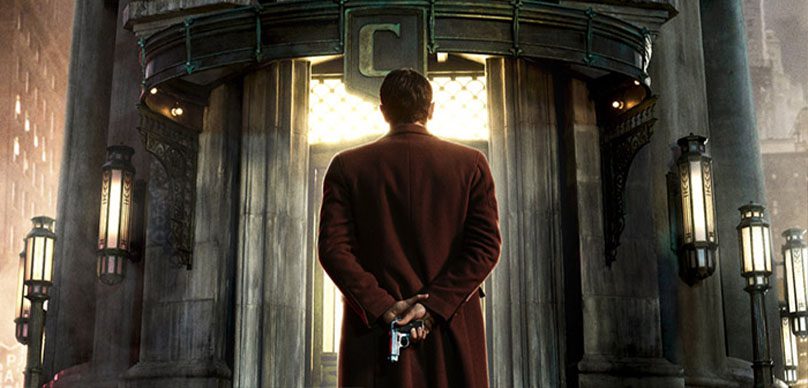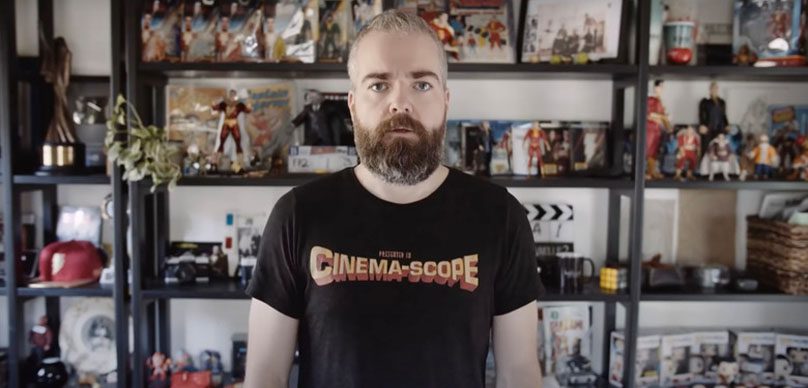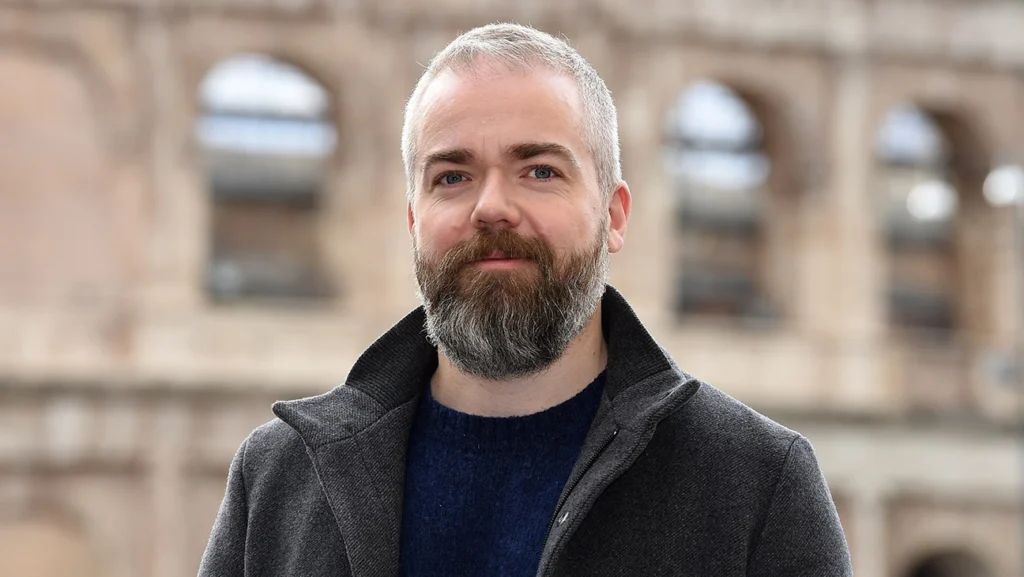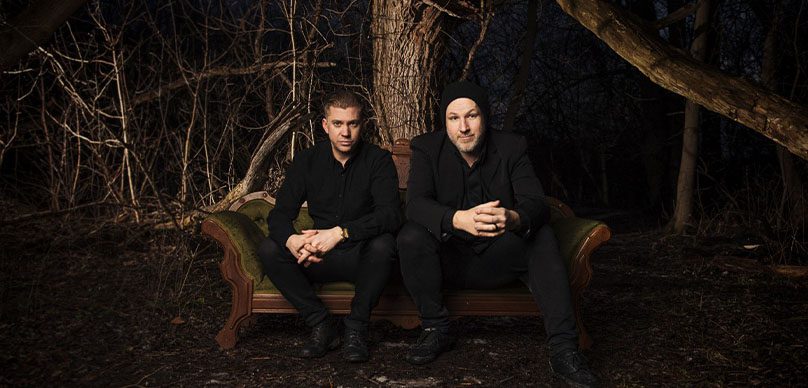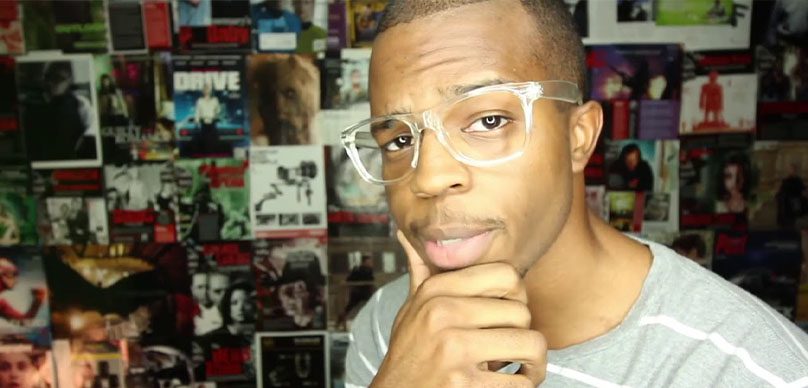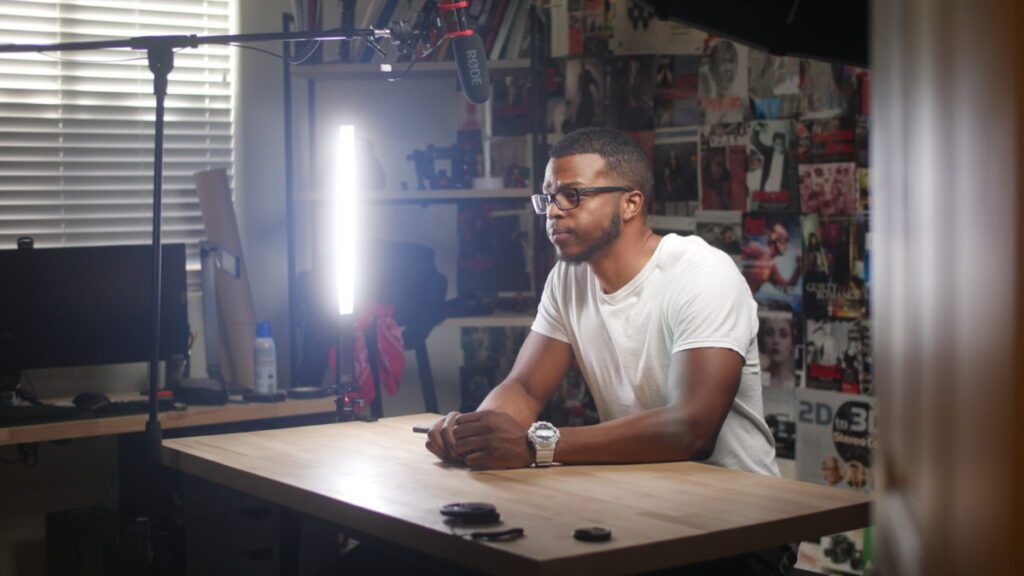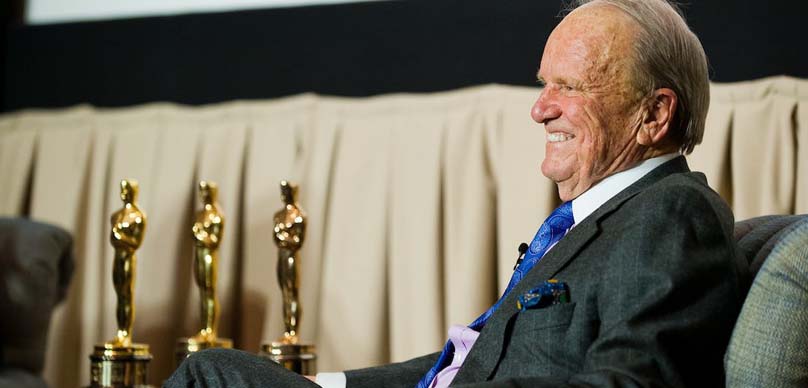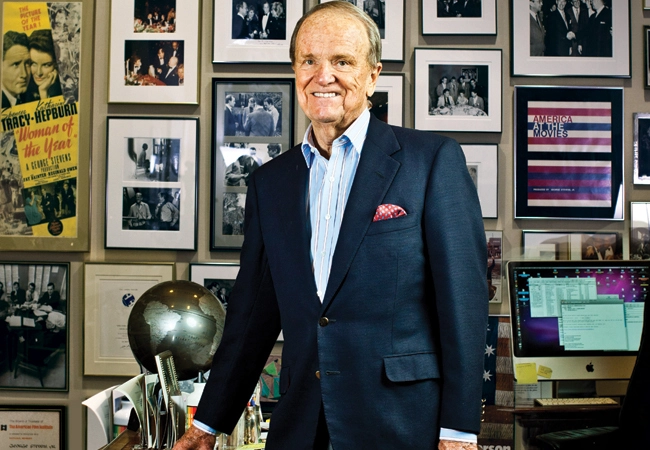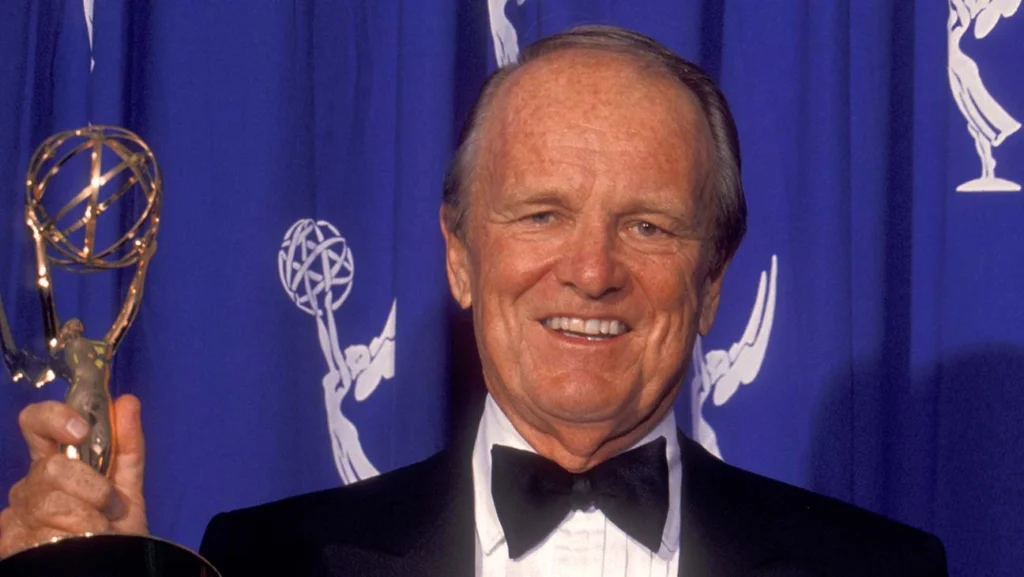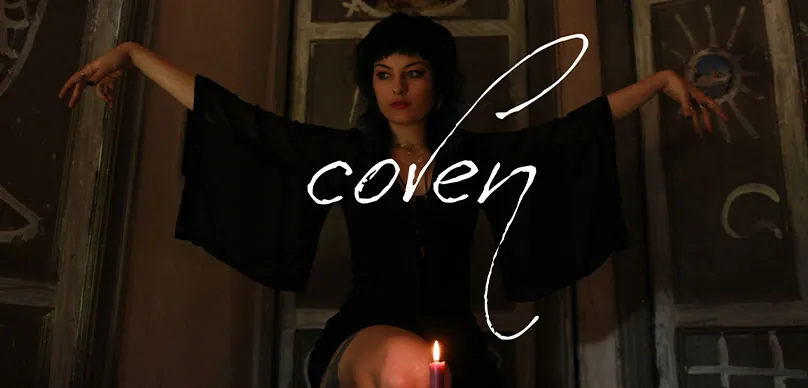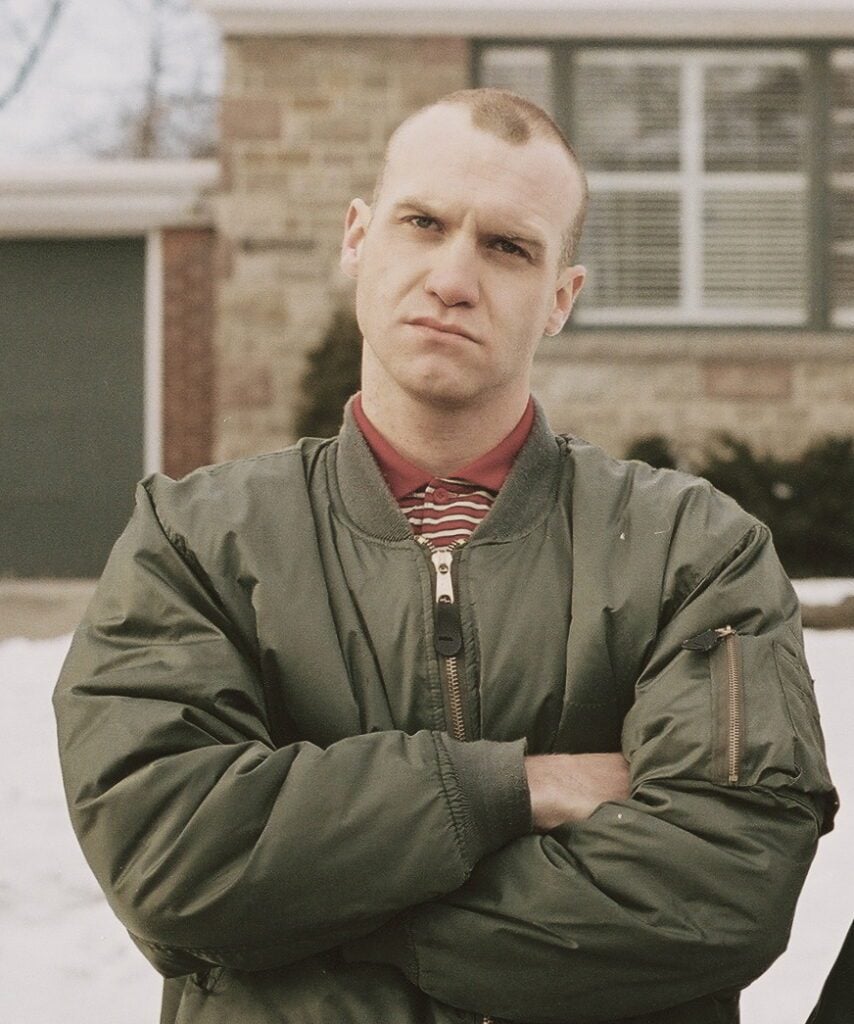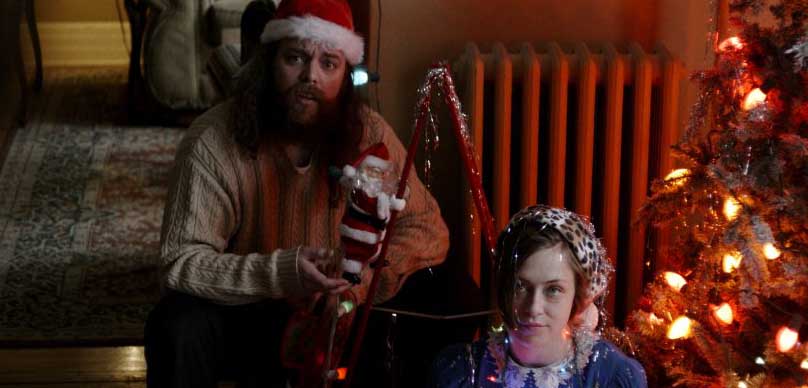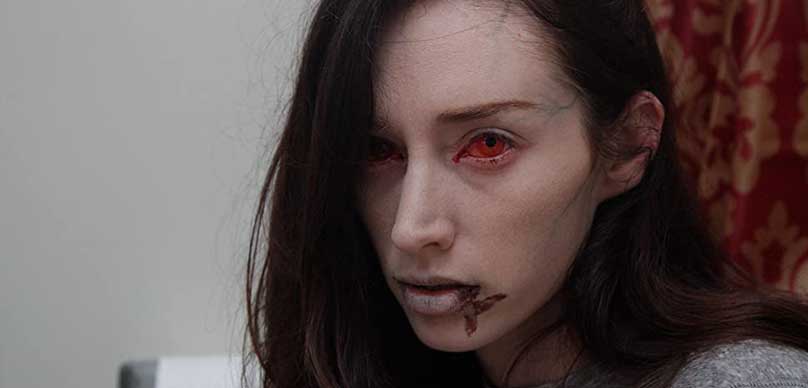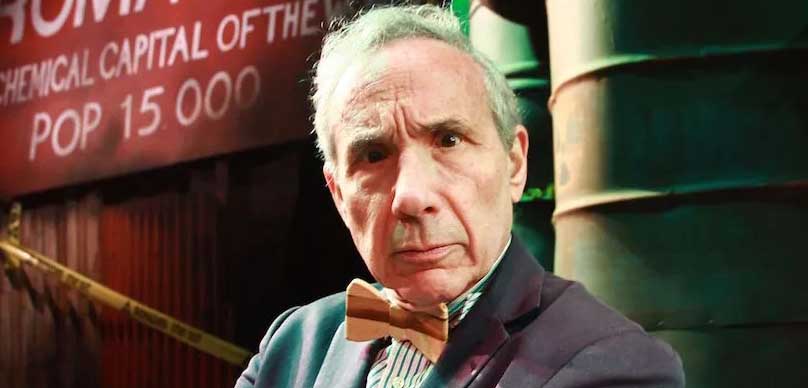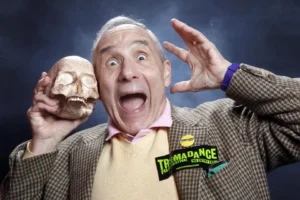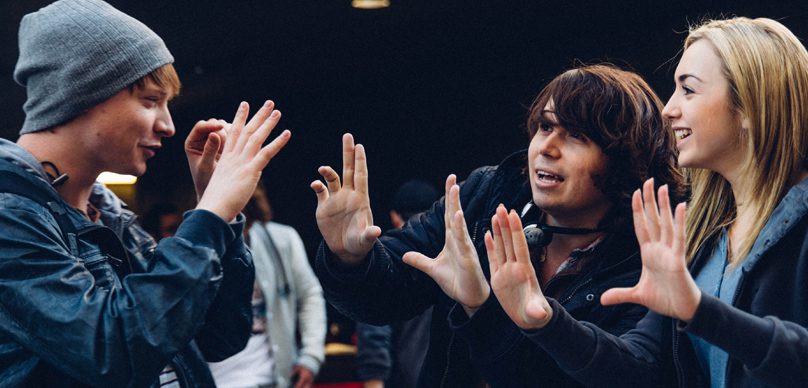In today’s show we have a returning champion Albert Hughes. Albert is a well-known American filmmaker. He is one half of the Hughes Brothers, a filmmaking duo consisting of Albert and his twin brother, Allen Hughes. The Hughes Brothers are known for their work in the film industry and have directed and produced a variety of films, often with a focus on gritty, urban themes.
Some of their notable films include “Menace II Society” (1993), “Dead Presidents” (1995), “From Hell” (2001) , “The Book of Eli” (2010), “Broken City” (2013). Albert Hughes, along with his brother Allen, has made significant contributions to the world of cinema, and their work often explores complex and socially relevant themes.
Albert’s new film The Continental: From the World of John Wick – Set in 1970s New York City, The Continental explores the origin of the iconic hotel-for-assassins centerpiece of the John Wick universe seen through the eyes and action of a young Winston Scott.
Please enjoy my conversation with Albert Hughes.
Alex Ferrari 0:04
I'd like to welcome back to the show returning Champion Albert Hughes, how you doing Albert?
Albert Hughes 2:29
So apparently, we still have the record.
Alex Ferrari 2:32
We still have the record brother was that it was during the COVID times. You were stuck in Amsterdam, literally stuck in a room somewhere by yourself. And I think I was the only beacon of hope for a conversation about film for you. They sat there and spoke for three and a half hours, four hours. And it just kept going. And we were we were on Skype. It was again even gone to zoom yet. We were on Skype.
Albert Hughes 2:55
Was it was it Skype? It was it was Skype. Well, Oh, over here about Skype anymore.
Alex Ferrari 3:02
I didn't move over to zoom yet, because I was one of the last holdouts on Skype.
Albert Hughes 3:07
I still have it. I still have the app. Do you still have the app?
Alex Ferrari 3:11
I can't no. Because my I got the new computer. It doesn't now. Like I couldn't record anymore. It's old thing. But man with that that's an epic conversation we had man, it's been one of the most downloaded episodes we ever had. And then of course, when I heard about you, when I heard about it, and press, I emailed you right away, I said, Hey, man, congratulations cannot wait to see what you do in the world of John Wick. And, and you did not disappoint my friend. I have seen it and it is oh, thank you. It is like I was telling you before, it's so nice to see a director direct in television. Not not crapping on anybody else's style, but that you can see a very distinct a point like point of view when you're working. And it's like those things that you and I grew up with in in the 80s. And the 90s are like these kind of directors who like, you know, put the cameras move the cameras, that POV shots, it's like, oh, look at that. That's nice. You know,
Albert Hughes 4:08
I you know, it's also it's a new world now where, you know, back in the 80s and 90s, when we were growing up to it's like the the film directors, film writers, producers kind of looked down on TV, you know, or sphere. There was no streaming back then but, and now like the best writing the best acting, and some of the best directors are coming to those formats. And I mean, Netflix owns have the best directors in town right now. You know, literally, literally, but then.
Alex Ferrari 4:36
But you know what, it's really interesting, because I've heard this from a lot of people is that a lot of the independent filmmakers who would have been an independent film in the 90s in the early 2000s are not going to television, because that's the only place they can actually make a living. Because there is no real output for market. The market place doesn't open it's not as open as it used to be for independent film as it used to.
Albert Hughes 4:58
Yeah it's Like the Marvel movies the tentpole, CIPS they've squeezed up Mom and Pop movies or the midsize movie reviews, other genre movies, you know, like, Well, my house is doing well with their movies, the horror genre.
Alex Ferrari 5:12
But Jason's got the sweetest deal. And Hollywood. I mean, you kidding me? Like I thought when I talked to him on the show, it's like, dude, you'd like you're doing like 10 million $50 million movies being distributed by Universal, like, widely. Like, that's the sweetest deal in the US.
Albert Hughes 5:25
Yeah, and some of those movies are only $5 million. And they have the sweet deals for everybody involved. And he has a really good business model. And it's really not only sensible, but very kind to the town in golf. You know, he's one of the few guys out there that that's doing something like that. We actually share the same account. And I did work with him on the Good Lord Bird. Because his company produced that. Yeah, but it's a new day and time. And that's what strange is like, with this series of Continental, it wasn't set up like a typical TV schedule 10 episodes or eight episodes where you're rolling into the next episode with your cast and crew, then bringing in another director, guest directors. And then you know, sometimes those episodic TV shows have that low in the middle where they're trying to save money, you can tell her filler episodes. And we've talked about me and you I do distinctly remember talking about last time in our marathon run. David Fincher. Oh, and the one thing you if you look at what David Fincher did with mine Hunter and you look at whatever the show runners are, I got to look up with the show runners are on Handmaid's Tale, there's a very consistent style and quality control going on with those shows, both shows could have been shown in a theater, and you would have known none the difference between whether it was a TV show or a movie or a one hour episode. But it all came down to quality control. And then there's other like, really nuanced the details like what I learned the difference between TV in feature filmmaking is a TV is a writer with meaning and as you know, right, and features are a director's medium. So when traditionally the writers medium has been going on it. It's less about style and tone of the museum meets on saying, as you know, you learn in film school. And more about close up close ups, close up shop, close. And close up. Yep. And that they still were to this day, they're still think that way, and they're slowly coming out of it. I'm talking at the executive level when you start getting notes. Well, where's the close up for that shot? It's like, well, people have these big screens that you don't need that close up anymore. So then the cinema like I give this, it's a bad good analogy, I don't know. It's like a guide on the phone with his girlfriend, she's breaking up with him. And he's very lonely, right. And TV, you see, there's a close up shot, because the writers are laying on their dialogue and film. You learn the Masters, like tell them the story in the shot to go really wide and have them really tiny in the corner talking and looking small and only so the shots telling you he's lonely and isolated and being broken up with. And so it's the dialogue but you don't necessarily need to close up let's face at this moment, right? That's the difference. But there's a benefit to TV and what they do, because I've been studying like, I consume a lot of people like succession and all those shows, you know, and they button, the scenes with close ups and the characters wheels are spinning. And that takes you into the next scene. You're like, Oh, I wonder what they're thinking or you might project on what they're thinking. And that's a very useful thing to learn from TV, because cinema doesn't feature the filmmaking doesn't really do that. Yeah. So there's, right now also, there's this thing where it's like, if I'm making something or another feature guys making something, I don't want to change my style, because it's a TV show, I don't want to do more consoles, I want to respect the audience is going to read that shot correctly, especially considering that the TV sizes have changed, you know. So we still all have a lot of adjusting to do especially on the the executive and studio network side, too. Welcome those filmmakers into the TV space for what they do, without constantly pounding them about close optional.
Alex Ferrari 9:03
I would agree with you on that. And when I was watching this, I was noticing I mean, it's this basically they're the three movies. These episodes, they're just three standalone movies with like Paley and like cliffhangers essentially are like the next there's another episode in this thing. It's it's serialized in that sense in this miniseries that you've put together with continental but the Makah segment, the budget, the production value of this thing must have been pretty impressive because the I mean, we all seen the continental and John Wick, right. And we've seen it we've done but this is John Wick in the 70s, which is a great decade to Tunis and by the way, the it was anything I mean, come on. It's I mean, it's as fun as you could get to play in that in that era. But the visual effects I was noticing the how the visual effects. We'll be right back after a word from our sponsor. And now back to the show. And the depth of it the world creation that you did for the Continental. What was that? How did you approach doing it like that? And I assumed there was a decent budget for this. But this is not $100 million $200 million show. But it looks like yeah, it looks like the end, we'll get into the actual sequels in a minute, because that's a whole other story.
Albert Hughes 10:25
Okay. Well, maybe it's actually I was gonna hit on it earlier, but I forgot is the one I was talking about TV schedules. And now they roll into the next thing that there's no prep time for the guest directors, we only had one guest director, Charlotte brush and who has been around forever, very capable. But it's even very difficult for them to maintain the style. And it's a very hard thing to do the quality control, the tone and the look and all that stuff. But one of the reasons I did it, there's several reasons why I did it. One was when I looked at the way they laid it out. It was like a 14 week prep leading into Episode One. While weeks prep, leading into Episode Two or weeks prep, leading to episode three each 35 days a piece that is not normal for TV, that's not a normal schedule. That's not even normal prep for a movie like 12 weeks. 1012 weeks is normal. Not I wasn't allowed to say. But they see that for. Yeah, but they see that 14 is helping the overall to you know, you're not just servicing one. So that was the first thing that raised an eyebrow, they go oh, there, someone was smart. They're trying to ensure quality here, you know, and with a guy like me, don't give me prep, you know, because I'll use it. A lot of directors, you know, don't use it, you know, and don't, you know, you know, parlay that into some real security in quality, basically. And then there's the other thing above the wick film producers talk to me first, because I wasn't sure I wanted to do it. I didn't know if I wanted to play in another man or woman's sandbox. But they they talked to me about it. And I was considering something else. And I go, I just want to have fun man. The COVID thing was really weighing on me as you know. And I think the audience wants to have fun. I don't want to this social issue stuff anymore. Like I've done it. I'll go back to it, maybe but right now, I have fun watching those movies. Why not basically right. And that was a real moto. And then you had me at seven years. Like you just said early. You had me with the 70s. Right. That's the era I grew up in I was born in. I have a white mother who's listened to Pink Floyd a black father was listening to James Brown. And I finally able to explore the the mother's side of my upbringing, you know, the father's side has been tapped into greatly from the past movies with fantastic r&b and hip hop and stuff. But now it's like, Pink Floyd. It's my favorite band of all time. No one would suspect that even some of my closest friends wouldn't know that. That is I don't care what band you bring up. You start bringing up Led Zeppelin, The Beatles, I don't want to hear it. Pink Floyd, My guys are my guys. And then the heartache of having to give that song to episode two, which is a you know, an episode I supervised and finished them the post on but I didn't direct it, though. Yeah. And it was Kirk Woodward, the showrunner. And my friend, my very good buddy. Now my partner in this who he was struggling with that scene, because we just couldn't find the right score for it. And we couldn't find the right. And he came up with that choice. And I go, man, that's one of my favorite songs, like, welcome to the machine. So it was it was he that picked it. And he picked a few others that I was cuz sometimes a needle drops you like I'm pretty, I'm pretty good at it like 70%. But when I'm bad, I'm really bad. It's really off, you know? And once you put it against picture, you're like, What was I thinking? I thought this thing would work. And he is the one that came with Black Sabbath at the end of episode one, which was this attitude Kirk that came with that. Because originally I put it in more of an upbeat kind of, it's kind of a punk reggae. It's called Murder. It's a woman singing murder. Ooh, murder, you know, and I thought, Oh, this is such a downer episode at the end. Because if something tragic happens, I want the audience to leave for a week because I knew it was gonna be a weekly show. I want them not to leave to down and you kept working on me like our and it's not right. It's not right. Okay. And then he brought this sad but track and I go oh, that screaming revenge and anger. So yeah, I got me anger a bit there. But
Alex Ferrari 14:21
You know what? That's the thing. You got to try things before you say no, but no, when you were saying it and I know the scene and I know the ending of that episode. I'm going to pick it would have not worked it just like I'm already playing in my head. I'm like, No, it's not.
Albert Hughes 14:34
I tried it. I tried it. The first few seconds like,
Alex Ferrari 14:37
You need anger. You need revenge. You need vengeance. And that's what that song. The energy of that song came out without question. I mean, listen, you know, John Wick is created an a bunch of movies a world that is unprecedented, really in cinema history. There is nothing like Java. There's just nothing like John Wick, and what piano did and what the creators do. it and the actions is that when you stepped into this world to play like you said on another man sandbox, did you feel any pressure of like, I kind of meant this better bring the heat. Because every single there hasn't been a week John with film in my opinion. Everyone has been like, dude like this last one. I saw it in the theater. I was like, This guy's really like you can bananas. It was it's it's like so much action that you can't even. I'm like how many years? That's like almost like it was a kickback to John Woo style, hardboiled.
Albert Hughes 15:35
That's the that's still Oh, somebody was bringing up No. Like a friend reached out to me yesterday was like, he didn't know I made this and accidentally watched it. And he could recognize it was my style. So he looked at the credits again, and he messaged me. And he goes, it just reminds me of us watching John Wuhan, the night we were go, well, that's where Chad partially, he has a smorgasbord of influences. And some would be shocked to know that not the John Woo part. But the Bob Fossey a musical part. He's into musical and dance numbers. And when you talk to Chad, he'll talk about all these influences. You know, Korean cinema, too, of course, Japanese cinema. Some of the same things overlap with both of us, but I my favorite John Wick, the fours three three just tickled me pink like, it's when you when you talk to the hardcore John Wick fans, they don't. They don't care for three, they love one. I think their order is now it may be one or four. But they really have a soft spot for one. It's one four to three minds in a completely different order of mind. 3124
Alex Ferrari 16:39
And four is still
Albert Hughes 16:42
It's solid, it's crazy. Like they do up the game. There's just weaknesses I have for three because they reminded me of being a 12 year old watching Indiana Jones like that knife fight. And then that Oh, I don't know Museum of knives. Like I thought it couldn't get any better. It just kept getting better and better. And then it ended with a guy's axe in the head. I go oh my god, this is the sword fight and on the motorcycles which is from the villainous Korean movie I believe. But again, it was awesome. And then who could have ever thought the smack of horses asked to kick a guy in the face like there's so there's all and then there's dogs the Halle Berry dog stuff like so it was speaking to the 12 year old boy me were the difference with four was I thought four in the end when it took me a while to realize was more of a spiritual movie. It is became a spiritual Yeah. Is though is one of the most I didn't expect that
Alex Ferrari 17:33
One of the most violent pics. I see that cinema quite some time. But it's it's correct.
Albert Hughes 17:37
But I also saw it with green screen. Yeah, I saw it though early cut where the RTA triumph, you couldn't even see the structure when they were doing that you couldn't see what happened to the Continental. I was watching a lot of blue screen and it was like a three and a half hour cut out. I watched it first. So when I saw it in the cinemas, I was shocked at like how good the VFX were like that arc to the Triumph thing like how there was no, there was no no Orchidee triumph there. They did shoot it in Lidar and do all those things. Right. But how realistic those VFX were like, I didn't know what that scene would become like,
Alex Ferrari 18:12
I thought the shot. I thought they shot it there personally, I said not that you told me that I'm like, I thought they shot they did a fantastic job. Because I couldn't tell
Albert Hughes 18:19
Well, there's established yours you know, and even in an established yours, if you look closely, you can tell that there's digital cars not not that it's badly done it just at the speed they're going in that traffic. And unless you're in Boston locked down all of Paris, it's impossible. You know, of course, we know how these things are constructed. You and I so we're able to know even if it's really great VFX What the What's going on, you know,
Alex Ferrari 18:45
I thought they might have locked up you know, you know, from one o'clock to four o'clock in the morning, something like that, because it was just looks so so good. And going back to John Woo, though. I mean, you go back to those kid that killer hardboiled that is ballet, with guns, and then WIC is just taking it to a whole other place, which then brings me to, but
Albert Hughes 19:07
You don't know what to say just before we get up at John Woo the big difference between then and now is that John wounded and have those air guns that you can put up to somebody's face and see the recoil and hear a little sound that's so safe. You can literally put up your eyeball. You know, he was using real muzzle flashes. stunk. Man, they were getting hurt all the time, because there are regulations out there for protections aren't the same in China at the time, like just running through stunt men, right? He was shooting for 100 days and more like, you know, John, who was going all balls to the walls without all the stuff that we have the tools we have nowadays. And then you have someone like Chester hausky, who comes from its background, who specializes in that. And then he found this perfect match with Keanu in that kind of world. And it's like a parallel universe, which is what's so freeing about doing the show the continental is like
Alex Ferrari 19:58
We'll be right back after a word from our sponsor. And now back to the show.
Albert Hughes 20:07
You know, when I started checking up a list of why I should do something like this, one of it was like, Well, my brain is gonna be free just to have fun now. So what's that going to be like, I didn't have any idea that I would have the most fun in my life on a set, or in post or in prep. It was like, an experience I'll never forget
Alex Ferrari 20:24
When going into the action, I mean, when I was watching the episodes, I was like, Mike, what is this like John Wick level, action, movie level action. So that this is it's not like if you're tuning in to see the continental and expecting like TV versions of John Wick action. It is not. It is. You could say it's, you could take it out and put it right into $100 million $200 million movie and it would fit perfect that was so I was like, man, it's ball. It was a single man.
Albert Hughes 20:54
It's the same guy. It's a company that Chad owns with David leach called at 711. And some of the same people that were in some of the Jaguar films are part of the stunt team too. And Lauryn Hill Stovall, the coordinator and action director was, it's from that, that at Simon Lebon camp to, and Chad had to bless the person that was being chosen for that basically, before we started, and then they go and do this thing called stunt biz, which is wonderful. You get to see everything beforehand and make adjustments. And they do this really cool thing a new school of stunt men do which is, first of all, they show you the stuff the old school never showed you anything right? They also make use of the environment. And if the environment is not Columba we may rewrite where we're at more this fights gonna take place. And it's interesting, I'm telling you, because there's one scene in episode three that particularly cater to your audience No way. It's like, when we talked in the past about when you have no money, what do you do with it? Right, right. So Kirk had written this scene where this character Lu, a black woman's being followed by this detective Mayhew and it was going to end up in this like fight between the both of them in the streets. And I said, You know what, I've always wanted to do Kirk a fight in the phone booth you ever heard that expression of fighting for was like, Hey, I've heard it, or sometimes a boxer announcer like they're just blowing each other in a corner and blowing each other and hitting each other. Taking blows in the corner, you know, there's they all skill has gone out the window. They're just,
Alex Ferrari 22:26
It's again, it's a street fight. Yeah, it's a street fight. Yeah,
Albert Hughes 22:29
It's street fight in, in close proximity. It's, uh, it was like watching a fight in a phone booth. So I said, we need to do this for two reasons. One, I think it'd be cool. Because we can use the phone with the environment a phone booth to this could be a lesson to people with no money in film school. But I want this thing to be the kind of scene where they look at it and go, you see, you can do something interesting without scope, and still tell the story and move on and play play on kind of, I don't know what the what that's an analogy, I guess, or a metaphor. Play on something like that. Yeah, we did have the budget to do what we want. I didn't feel the pinch in any way. Like you can give me $10 million. I'm not going to feel a pinch. I'll design the movie to the budget. You can give me five I'll design the movie to the budget. But what I always aspire to from the first movie is you give me 2.5 I want to make it as low as seven you give me 10 I want to make it like 20 and there's little tricks to do that we talked about in the last time we talked about but people should know we each budget had a pretty much the same budget as a first John Wick movie. That's it well, it wasn't any lower whether any higher.
Alex Ferrari 23:36
Yeah, and the thing is too is like when I was watching this again, I said this you use some of those tricks to get more bang for your buck. Because it definitely looks more bang for your buck without question. Now speaking of stunt, guys, this is my I love I love stunt guys. I was working on my on a project I was working with a 24 stunt team, the 20 Kiefer Sutherland's shout back in the day, and is it just me or are all of them absolutely nuts?
Albert Hughes 24:07
They are the old school guys are a different type of nuts. The New School guy right there a different type of nuts. Yeah, they all are like, go ahead. Sorry.
Alex Ferrari 24:16
No, it's like I heard like when when I would go Listen, I need you to do this. I need to do a gainer here. And I needed to do flip like but kind of jump off the second story. Like no, I don't need a second. I'm we're good here on the first No, no, but like, I could do the second store. I could like I'm good. Like no, but I'm like guys, it was not there but all of them would always take it to 11 as they say in spite of
Albert Hughes 24:39
Yeah, they're their adrenaline adrenaline junkies, you know, and they're like fighter pilots here in this whole other mode, you know, and they recall from the past and and has moved to the new school. They have this swagger this kind of arrogance in they need that arrogance in their job, you know, but sometimes you can miss read the air again and not see the person basically right. And they're very interesting, especially the new school guys that come out of 87. Let me because they always overdesign, like you're talking about that in a way they want to give you more than it's done. guys never want to give you less. And you actually always have to talk a stunt person though. Like no, no, do. We don't really don't but
Alex Ferrari 25:21
Guy, or girl.
Albert Hughes 25:22
Yeah, but all the dirty little the dirty little secret. The dirty little secret is, the more times they do that stung the keep getting paid bumps on depending on how dangerous Dustin is that you're getting these these crazy pay bumps. You know, I didn't know that until four years ago. I found that out. I'm like, really? Oh, that's why they're so eager to do another. Like they're lipping to the third take like, Yeah, let's go.
Alex Ferrari 25:45
Let's go. Let's go ahead. Let's go again. I can't imagine like with the with the stunt team that you had on the continental these guys, I mean, there has to be, I mean, other professionals, but it's got to do some some damage. Damage on these guys, the body can only take so much, even as a professional as
Albert Hughes 26:02
Somebody,
Alex Ferrari 26:03
You can only throw them down the stairs so many times. Right? I mean, seriously, at a certain point, even if they know how to follow them if they got the gear on. And at a certain point, you just got it that God bless.
Albert Hughes 26:18
Yeah, and the differences too is they have to train our actors. Like that's what the wig fan base wants us to see their actors doing it. And we had this interesting story one day when the Jessa lane is an actress who played Lulu and they're the brother of Myles Hubert. Ponte jour is the actor's name. But it just was, you know, she's a very sweet woman. And she doesn't like violence, really. And they're training her and she accidentally it's a stunt guy in rehearsal. You know, we're not shooting there in the warehouse doing this. And she's really emotional, but she's really bent, bent out of shape about it and like, no, no, this happens all the time. They don't worry. And we were all a little worried about her. Like, is she ever gonna be able to like, just get over this and she did. And you've seen the El Camino fight with her in the back of an El Camino on Episode Two, I think. Yeah, you've seen the whole series, right. Okay, so,
Alex Ferrari 27:09
I've seen most of the series. I haven't seen all of it yet. I'm gonna see most of it.
Albert Hughes 27:12
Oh, shit. You gotta get the three man we shouldn't. Okay, we'll come back with Kirk.
Alex Ferrari 27:16
You come back with Kurt. Oh, that I've seen the first Oh, I've not seen the third one yet because I have a family.
Albert Hughes 27:22
Oh, the third and the third one goes. I know. The third one goes off the rails. But but she is an episode two in the back of an El Camino like kicking a bunch of people's asses. Right? You see in that and then she basically blossom? Yeah, you know, but wait, I gotta pause for Episode Three prepare you because it's gonna feel like to you a very deceptive, it starts out like, Oh, this is kind of starting out like the others. You know, it's normally paced. And then it just takes this right turn and it just goes nonstop for 15 minutes. So
Alex Ferrari 27:53
So you were trying to you were trying to John Wick for it basically just this nonstop.
Albert Hughes 27:57
Why would he was a hybrid because Chad has a status thing he does. It's wonderful is that? It because he has a two or two and a half hour movie and doesn't have to tow a 3x structure and too many new characters. And you have Ken Oh, and the audience knows what he can do. You can wallow in a 20 minute set piece. I can't really because I have a story to tell. I also don't want to bore the audience. You know, I'm very much in tune, not having action fatigue happen. So it's deceptive in episode three. Because there are modules of action, seemingly taking place in one set piece which is inside the hotel. It's a raid. I mean, it's pretty obvious at this point, it's a raid, you know, that Winston has to take power from this hotel, and a revenge story, right? So it feels like one continuous action scene. It actually isn't. It's one continuous raid, that the way to fix your reign is as you're watching a lot of action. Because it it jumps around to different locations within the hotel and different group members doing different things. But it's relentless, not in the same way as relentless as you get the Arc de triumph and then you get the Dragon's Breath seen from the above angle in the building, and then you get this steps. Then you get the steps. You put those three back to back that's like 45 minutes straight of nonstop action. You know,
Alex Ferrari 29:19
It's a lot. It's a lot. Now I gotta ask you, man, because there's a there's a special actor who play who's in this in this show. Mr. Mel Gibson. How do you work with not only a legend, but arguably one of the better directors of his generation? Because he is a really good director as well. How was it to work with him?
Albert Hughes 29:42
Yeah. He's, he's, he's a pro. And once you get to three, you'll see he goes off the hinges, you know.
Alex Ferrari 29:52
We'll be right back after a word from our sponsor. And now back to the show.
Albert Hughes 30:01
I'm in the process of working with him you've seen in the past like he does he's very passionate like ransom or Braveheart or road warriors, my favorite. And that's why we wanted him. Yeah hacksaw as as a director is he he makes you believe in what he's doing in the movie if he's playing the character, you believe, right? What I found was interesting is that he, those zingers and one liners that Sam he likes playing with words from Lethal Weapon movies, that is him. That's what he comes with. That's how his brain works. And he plays naive on the set. It doesn't look back and look at everything and like what lens you're using, you know, and he acts like he doesn't know, he knows. And he's watching everything like a hawk. And he doesn't go to his trailer, which is a great thing to have with an actor is like they're not slowing you down. He's very much I think he said it one day, he goes, I'm a good soldier. And he is, and he's highly intelligent on both sides of the camera. And it was just a fun, we had fun with the whole cast. Because I have some people in here, like Adam Shapiro, who's opened a pretzel business during COVID. And it's all the rage in Hollywood right now. And chopping pretzels. Who's a who's a one liner, walking one liners Zinger comedy act, you know, that I work with the past few people I've worked with in the past that have this thing that I was dealing with, with Mel to like, they just want to go on the set and have fun. And they don't want to cause problems. They don't want any headaches. They don't want any drama. And those are my favorite kind of people. So he's cut from that cloth. And I've been here for 40 years of professional he is on the set. And it's exactly what I saw.
Alex Ferrari 31:35
That's beautiful man, not when you when you walk into an action sequence like that as a director. These are not simple, not simple sequences by any stretch and right it's not like a punch, punch, punch, the movement the camera. How would you how do you approach doing this? I know you've seen that a little bit of previous but like if you're if you're talking to a young directors who are trying to get into action. How do you approach like some of the scenes like that in the in the first episode? Does their sequence going down the stairs with him? Will you look like Kiana by the way he will I mean, he was on point, the main actor, the main character.
Albert Hughes 32:15
Yeah, less training though you only had three weeks.
Alex Ferrari 32:17
But he but he looked like I'm like this guy looks like John. I mean, in the movie. He looked like John Wick. I was like, Oh, wow. He's like John Wick style. That's how good he is.
Albert Hughes 32:26
And we are not into that.
Alex Ferrari 32:28
Yeah, obviously. Yeah. Because he's just he was so good at it reminded me so much of John, or of Keanu doing that. How do you approach that kind of scene as a director?
Albert Hughes 32:38
Well, I was very lucky because of the built in nature of at 711 in L'Oreal is you would think you would have to stress about it. If it's a younger filmmaker, and you don't have a great stunt team, you're in trouble. Sure, if you have a great stunt team, what I do with them, as I say, I've learned in the years it's like, and I think we discussed it before, it's like sometimes let professionals be professionals if you're trusting and don't get in our way, let them do their job and then stir the pot every once in a while I'll have my bullet points of once. And for that sequence, what I want it was very overall in a general sense was um, Jackie Chan's use of objects and how playful he is with so he's Frankie's carrying a chest with the point precedent and I will I kept saying it might it was bullet points written down and I will talk to her No, I want him to throw it at somebody. So that distracts them and they can shoot it that's very Jackie Chan that's also very chest to hausky to and John Wick. It's very much fits in that world. But I remember first seeing it with Jackie Chan it's a playful playfulness with chairs with objects and stuff like that. And then we would talk about the sequence and they would design it and then we start just making adjustments now a lot of times the struggle between me and Lauren no healthy really healthy struggle and debate creatively was how long he was going that scene is a one page that's one minute you give me one minute he would turn in six minutes right I'm gonna go now you're killing me over here right so there's a this would constantly going on and that's part of the wick way of being trained in stocks is like they do explore it fully right? So in that staircase sequence you're talking about I cannot a whole floor of violence. There's a whole tooth two sets of stairs that I cut out because I felt like it was undercutting the gag before in the gag after and sometimes you have too much of something. It just undercuts itself because you can't focus on the peaks and valleys basically. And so that was even in a phone booth fight that phone booth fight was really long when I first got it. The you'll see this really fantastic fight between these two women and Episode Three on a roof on the roof of the continental I when I first got it, it was long. And I told my editor like let's maybe cut back to somebody else and then cut back to this. And he just looked at me Sit No, this is wick. This is like world, you know, you know it's a cutaway, we're gonna stay in it. And I think him and that's what a good editor does too is like when you're insecure as a director, they just say stop. No, they did like the scene. You've seen it because you haven't made it to three. You saw the adjudicator see where he has been beaten down that guy. And that atrium, right. So when I get the first cut of that, because I love my offline sounds to be great. They put great sounds and so it was pretty much the same thing in an offline It was brutal and how many times he was punching them in the opening. And I said Ron Ron Rosen's, my editor, I mean, he's a genius like Iran. I think maybe there's too many punches on this guy's face, and the studio or the network's gonna say something, and I kind of agree maybe it's a little too much he goes, dude, dude, it's, it's the wick. It's the wick roll. There's, there's no such thing as too many punches. I'm like, Okay, well, we'll just keep it for now and see if they say anything, right. They never said anything. And then I watched John Wick for and when he's when he's punching killer in the face to get his tooth. Like, it's about the same number of punches. But again, it's kianak Carol has such a soft spot for the audience. And he can pretty much get away with anything, except killing an animal.
Alex Ferrari 36:15
Right! I mean, you could fall out of four stories land on a limo and limp away four times and then move
Albert Hughes 36:22
Continuously. Yeah,
Alex Ferrari 36:23
Continue, keep and then fall down 45 flights of stairs. Get up brush it off and you just like get shot
Albert Hughes 36:29
Off the building could shut off a building by Winston fall following an awning and then on the concrete. Yep,
Alex Ferrari 36:35
Sure. Why not? Yeah, it makes the ice canopy of course it's SynScan. Now with that said, it was so with that said did you have any easter eggs? Laid out throughout this episode? These episodes are for John Wick.
Albert Hughes 36:49
There is the John Wick easter egg. For the hardcore fans. There's the casual easter eggs. And then there's the 1970s Easter eggs like let's go in reverse. So 1970s Easter eggs en picks up Frankie after the staircase shootout. That's an exact replica of Travis bagels taxi from taxi driver. I remember I saw on Episode Two. Episode Two. If you notice that late in episode two, a Starsky and Hutch car appears red with that Nike, white swoosh whatever that is. Episode Three. Right before that phone booth be done I told you about. There's the warriors from the movie warriors. There's the hearse with a graffiti all over it right. Then you have the obvious John Wick kind of easter eggs that are quite obvious. Whether it's what they were doing with the coins, what some of the rules are, what some of the changes in the rules are then the deeper ones. Like in episode one, when Winston gets the idea to go to the theater to see that old decrepit theater where he finds his brother. The scene before that he's at a stoplight. And he looks at a poster. And it's a Marilyn Monroe movie. Yeah. And the name of the movie is Be seeing you, which is from which film to and I think the the death, the death of a woman I forgot her name. She's constantly saying to him be seeing you and he would sign back up or he killed or Be seeing you. So that's the title of the Marilyn Monroe movie because they wouldn't give us the rights to Gentlemen Prefer Prefer Blondes as a title. And that triggers a memory. And then that line recalls again in episode three of the show, and also the adjudicators license plate. She has a car we reveal in episode three, but her license plate is a line from the adjudicator and film Three, show filthy. Right? So there's a bunch of them that and Kirk, the showrunner. He itemize them all because Oh, He cocked marketing and Amazon Marketing wanted it for the you know, that's a really smart thing for them to do. They wanted it to use it for marketing. I forget until I see it like oh god, there's that there's that there's a bunch of them in there.
Alex Ferrari 38:58
So that's really interesting. So that was kind of part of the plan. All I mean, yeah, like every once in a while you'll throw stuff in. But this was like really thought out. Like, where are you going to throw?
Albert Hughes 39:06
Yeah, it was more coming from me and Kurt, being fans of the movie. It wasn't any mandate. There wasn't even they didn't even just tip us off from the film side. What happens in John Wick, or although I saw it early in post for this, they weren't doing that. And it was so freeing in a way they weren't doing what Disney or Marvel would do which is like they have these particular mandates. You have to have to show the show to not to the future. We love that we could reverse engineer and know what we will the first three films where we knew what that that was. And they they just kind of trusted us. I don't know why but they did. And me and Kirk would just break down those movies and say, well, that'd be funny if we can put that in there. And it's always fun to put easter eggs. I think easter eggs like even if you're just doing a normal movie that has no reference to anything IP related. To put easter eggs in there nodding to other movies is always a fun thing.
Alex Ferrari 39:59
We'll be right back after a word from our sponsor. And now back to the show.
Albert Hughes 40:09
And then episode three, you'll get the famous one. You have to really watch out for my favorite movie of all time. Midnight Cowboy. I'm walking over here, you know,
Alex Ferrari 40:18
Yeah, of course, that was a complete fluke. When that happened?
Albert Hughes 40:22
Well, neither did you hear there's two different versions of that story now,
Alex Ferrari 40:25
That that was not really what I know is that it was a real Capitan, a real cab almost ran over Dustin Hoffman. He's like, that's that was the story was the story.
Albert Hughes 40:37
Now there's a counter story that is actually believable because we know what goes on, they would have had to get a release from that guy that uses his likeness. The cab driver because you clearly see his face, and they would never wanted to put the actors in that much peril. Walking across the street secretly recording. And the line of dialogue I heard is actually written the ad lib may be the line after where he talks about that could be a good insurance scam, too. I saw the story that broke it all down I go. That's interesting, because for years people thought this, but we're gonna hear it from Dustin's mouth, I guess.
Alex Ferrari 41:15
I mean, anything's gonna tell the truth at this point. The game he's just gonna make want to live. Yeah, exactly. I mean, he. I mean, it was the 60s. Right? It was the 60s and I
Albert Hughes 41:24
68. He was shot 68 was shot.
Alex Ferrari 41:27
So it was the 60s. Would they need to release Yeah, but it wasn't a public environment. So maybe like That's true. Yeah, that's true. You can kind of get the documentary but you could because it wasn't a public street. Technically you don't need I mean, and it was just a different
Albert Hughes 41:43
And they weren't doing that thing back then were with in New York when we they were shooting inside of a van with like the tinted glass the good shots like that.
Alex Ferrari 41:51
Oh, yeah, like Yeah, and without permits, and just like running around sometimes. Because it was kind of it was guerilla filmmaking was kind of the beginning. And then that beginning but it was like when they started really start being the vibe started like nothing then that capital really kind of started that whole easy, Easy Rider. And now and obviously, reading C drive, right, Raging Bull and all that kind of stuff. But yeah, there was, I'm curious if you talk to us next time you talk to Dustin. Let me know
Albert Hughes 42:19
I'll hit him up on my rolodex.
Alex Ferrari 42:22
Exactly. So I'm coming from a collar battle I was at the colorist for a long time as well and had a post house I was looking at the approach to the color grading of this which is shoot this on by the way, gentle camera
Albert Hughes 42:37
It was the the airy trigger, which model DX whatever the fuck it was the same lens. It looked like we it was degraded. It was degraded because we got the 1950s lenses I may have talked to you about this before from had a vision that no DPS want to use anymore because their soul they literally had to dust them off when I was doing Good Lord Bird, and they have all these imperfections and anomalies in them. Right. And they they are they were built for MGM by path A or path a path A and MGM are somehow involved, right. They hadn't been used in years. And I had danza Zaki was the lens guru over at penerbitan, who services all the top DPS. And I just went in one day without my DP because my DP was in a different city. And I said, just give me the funkiest lenses you got just think of anything wild that nobody wants to touch. Even if it's cracked, just bring it and then we started testing them out. And I picked his set. And later I found out because I said I would like a list of the films these were shot on. Were Yeah, and it took them actually months to give me the list. It was like a list of 200 films, but the three films that stood out to me were Dr. Zhivago. Cool Hand Luke, and the graduate. Oh, so you watching the Continental? Yeah, you're actually seeing through the same exact lenses that shot those three classic films right. Now, I could have shot with a red and airy or Sony and I don't think you truly could know the difference because we're not only doing that we're also deciding a lot. We're Maxine Gervais who was my colorist I spoke to you about last time it was on all my projects dating back to Book of Eli which we talked about that she's fantastic. She's an artist. She's my partner on every project like there is no DP director relationship without her that that try it that Trifecta doesn't work if the DP comes in and doesn't get along with her. I can't hire him because she's she's my partner in this you know? So she goes in and we start doing the grain thing again we start we don't do that that film grain that one they license out which is bullshit you know it's a scam there's no that's a complete scam. It's a scam okay. She scan she's they've scanned every film stock imaginable from the past okay. She Oh, for great. And then she does a thing. And I don't know the technical terms for it. But there's different layers of color registration and mids highlights, and you know more than I on the thing, right, and how brain interacts with the mids and the highlights and the blacks. And she goes in and there's different layers to and degrees to it. And sometimes we land, we do the stubble, we try to have the imperfection or like one close up maybe grainy or than the other one, or the wide shots are a little more grainy than the medium shots. So we checkerboard, the grain, we pick the degrees of grain 1020 or 30, or 40%. And we are base level, let's say be 20 throughout the whole show, and then we sometimes will attend and go to 40. And it's a subconscious thing where you when you're watching it, you feel a little bit of inconsistency that reminds you of analog. And so there was a lot of things she did that she's a genius colorist basically, like she's like, I think she's gonna be mad. I said that she like the Rain Man of colorist because I tease her about certain things.
Alex Ferrari 46:05
It is a compliment, but I could see where she could go. Hey, man,
Albert Hughes 46:09
Yeah, but I teased her about we mean are like, people come into our color selections. They see us bickering, because she's so sensitive, because she's an artist. And she just goes hard to get it right. And sometimes I'll just say something just to fuck with her. But they think that me and Maxine are fighting and we're not really fighting. We love each other. And we're never mad at each other. Never right? She'll pick, she'll pick on me and I'll pick on her. And she'll say something like, Okay, so there's a transition. I know, you will notice it's like I like sometimes selfconscious transition. So it's tilting up from the beat down the adjudicator and goes this atrium, yellow circle turns into a yellow white right?
Alex Ferrari 46:48
Oh, I love that. Well, I love that shot. Yeah, that's what I was talking about. That was one of the shots. I was talking about what I said about directors. Absolutely.
Albert Hughes 46:53
Yes. So with her like, early in, prep up putting a shot list. I'll put a magazine dissolve, which is a customized dissolve, you know how that works. You're pulling different image up on the second the beside, and you get the customized This is all I said I put out so I'll put in the shot list. And for the editor too, because he has my shot list. So then we Maxine does all by putting a quotation to the next thing. And it's a it's a yellow white. I didn't know I didn't explain it to my editor would a magazine dissolve was because him and his assistant were busy online thinking it's a technical term from Hollywood. They can and I said no, no, no, it's my colorist who who does these? Fantastic kind of creative dissolves, because that was one. Like one session. We were snapping at each other on Alpha about as I said, Okay, Maxine, I need like a 48 frame dissolve here. And she just snickered at me and goes, Oh, you want to dissolve here? I thought you wanted something more creative. I'm like, well, sometimes a normal dissolve. Works, you know, just that's better.
Alex Ferrari 47:55
That's amazing that they thought that was like a special tip. Because to be fair, in Hollywood there. There's always insisted beginning of time, there's all these weird names for certain things and you know, a stinger a B 52. Wilhelm scream? Yeah, well, exactly. And then people like, Maxine, dissolve where's the Maxine?
Albert Hughes 48:15
Yeah, well, now, you know, from your show, in the film, also, a Maxine, dissolve as accustomed as all from henceforth,
Alex Ferrari 48:25
Yes. From hence for they will be called the Maxine. It dissolve. I gotta ask you, man, look, him and you and I are a couple of old dogs. We've been we got a couple of bit of shrapnel under our belt. And, you know, when you and I talk is so much fun, because we talk in cinema and talking about but we, you know, our generation kind of grew up with, and I don't see that coming up behind us men. I mean, there are some, where do you think 50? I mean, are they going to be doing? You know, this kind of like, what you just explained with the grain? Like, are they going to be doing that in 40? Or 50 years, man? Is it what do you think?
Albert Hughes 49:06
Well, it's, it's the true the Tiktok generation now, right now, the the generation that was born. I mean, a lot of after us are just a limbo out for us. We were we were there. From the analog to digital, we saw that I'm so happy we were that we know that difference between film
Alex Ferrari 49:24
British generation. It's the British generation.
Albert Hughes 49:26
Yeah. And we know the difference between digital editing and film editing. You know, it's so I'm so grateful that we got to see that there's something interesting going on. And this is a subtle or conversation or more nuanced one on about this generation. It's like they're seeing like, let's say a movie is out in the theater and they didn't put film great and they didn't do this and it's very clean. It's a Marvel movie and it's very everything's very clean. It's very digital. It still somehow does feel like film because of 24 frames because the shutter Oh
Alex Ferrari 50:01
We'll be right back after a word from our sponsor. And now back to the show.
Albert Hughes 50:10
Motion Blur and depth of field depending on how you use it, those three things we talked about before, right? That do convey the sense of cinema, it took a while for digital to get there because of those three things in image quality, right? But if you actually play a piece of film, you go whoa, whoa, this is completely Oh, done. Oh, God. Oh, even me, and you have been been fooled into thinking, this looks like film would actually know it. There's a whole other thing going on. There's registration problems, there's scratches, there's ducks prints, there's all this
Alex Ferrari 50:43
Project project the print of Lawrence of Arabia and project digitally project the print of a Marvel movie. And you tell me if there's a difference in the
Albert Hughes 50:54
It's an analog, it's an analog quality. Now there's no I'm gonna parse this argument out different like, I think you and I talked about this before I really don't get off on this whole film purists shit, that group of filmmakers and filmmakers. I think it's fucking bullshit. It's nostalgia. It makes no sense. And Excuse Excuse me for saying this. It's a bunch of white men who are in this Daljit okay. They need to stop going against the winds of need to stop going against the winds of change and start help building windmills. Okay. Um, no, like I'm when I see a bunch of nostalgic old timers. It triggers me is a half biracial guy. Do you start getting to nostalgia that goes down a dangerous road? Okay. Enough. Let's just take all these. Let's take all the and I know I'm being harsh there. Okay, but let's take all these tools available to us. And tell the stories we need to tell by some of them don't believe in di somehow I didn't have any VFX in this movie. I don't give a fuck. Or are talking overly too much about IMAX like, I don't give a shit is Is it good? That's all the audience cares about? Is it good? If it was shot in an iPhone like tangerine? It doesn't matter? Is it good? But to answer the larger thing you're talking about, it's like we're in a world where everything's getting drowned out by too many voices on the internet. And like, you know that because you have to find your niche and all that stuff. So film guys on what film in history, it's got to kind of die away with the new generation. And they're gonna be talking about the film from our generation as being you know, they're gonna be talking, it's not really our agenda, but they're gonna be talking about Marvel movies like, like, as if it's So Lawrence of Arabia. That's what's crazy.
Alex Ferrari 52:38
But you know what, quit and quit and said this really quick. I saw an interview with Quentin. And he said this really interesting. He said he saw he had a conversation with his 16 year old. And he's like, Hey, I was four years old and Iron Man came out and he goes for that kid. That is Citizen Kane. That is, you know, Lawrence of Arabia,
Albert Hughes 52:55
And Ironman is a good movie. That is a great movie.
Alex Ferrari 52:58
Ironman is a fantastic film. But the point is that that is I mean, if you talk to John Favre, he's not gonna like yeah, it's it's good as long as Arabia or is as good as you know, all these it's not. It's a classic in the in that genre, without question. But
Albert Hughes 53:11
What what's also like, it's just like when we are you were younger. Did you remember I'm sure even went to the stage where you were the certain age or like, I don't know, watch a black and white film when you're 12. Oh, watch it black and white. It's Oh, yeah, different watch it, and they know, not older. And you're like, oh, Samurai. But here's what happened during COVID. I gotta tell you about what happens because I've been to film school, I got film books, and I read and I watch a lot of stuff. I have the criterion channel. And I started deep diving in the 30s. And being really fascinated by the fact that the technique of opticals, in camera movement in lighting was at an apex in the 30s. And I'm like, Well, why is this like 30s 40s 50s and started slow down by the 60s who was out unless with a very special director, like Hitchcock, right? Or David Lean or somebody like that, but the 30s Kubrick, but the 30s had transitions and moves like I've never seen before, right? And I go, What is this and I started thinking about it, I go, Well, 1930 1927 2728 sound came in. Before sound, they had to rely strictly on the visual so they were well flexing the visual and opticals right, you look at metropolis and the optical no multilayer obstacles, okay, in the framing, and that also, they started leaning more towards dialogue and now that they started going away from technique of the visual. And that was a an epiphany. I came to I don't know if it's correct film theory, but an epiphany. I came through this last year because I've been deep diving on 30 films. And I'm like, Oh, my God, that I'm so embarrassed that I thought that we cannot scale them. You know, it's like, no, you can't creativity is creativity. It doesn't age you know?
Alex Ferrari 54:55
I mean, you look at the look at something like Seven Samurai or you look at you know, any of the core equals our films that were Russia mon are all of those ease just looking at? Oh, okay. Yeah, I just, I just okay, I got what
Albert Hughes 55:10
They're doing I did a time when there was no video monitors. They couldn't image Sergio Leone didn't have a video monitor with those close ups
Alex Ferrari 55:17
Bro watch. I am Cuba. Are you kidding me? watch that movie Iron Cuba and you're just sitting there like who never heard of these filmmakers doing stuff with like 5000 pound cameras that look like they're doing it with an iPhone. They're you know, putting things on on wires and putting them in the middle of the street while there's a revolution got like what is going on? And that was what's the 60s it was in the 60s of him not mistake. Yeah. Early 60s. Yeah, it was it was hidden until
Albert Hughes 55:49
Yeah, well, that sounds amazing. And that's what's amazing about those films like it was much tougher, much heavier equipment, like you're saying, right? Communication. They didn't even have walkie talkies. early cinema, right? They didn't have cracked wall control. This, they didn't have a lot of things. It was a lot tougher. And then you had to get printed scripts do everything by phone. There was no digitally sending the print or script to Well, someone across town to read it right away. It's, it's amazing. It's like it just shows you something like put those people nowadays. Oh, they're running circles around all of us. I mean, can you already work? But let's say
Alex Ferrari 56:27
Can you imagine Kubrick with today's technology? Can you imagine Hitchcock
Albert Hughes 56:31
I wonder I'm so that's the that's that's a fascinating thing. You just said like, what would Hitchcock and Kubrick embrace digital? Or would they do like these other handful of directors? Who would? No no, I was oh my god, I shouldn't film. Which Well, I thought I was gonna be one of those guys in film school. I was I'll never leave felt like, I'll never leave home. No. We talked about it before. It's like I love the control of digital. I love knowing I can sleep at night. I got it.
Alex Ferrari 56:57
Right. You don't have to wait the next day that you rolled the dice. Oh, was the gate? Was there a hair on the gate? Oh, was there
Albert Hughes 57:03
A monitor. You can see you could put your lead on there. You can see all the sudden and costumes react to it? Like no, I'm not into the mystery dog. Forget that
Alex Ferrari 57:12
Kind of greed. But you got but the thing is that both you and I had the opportunity to shoot 35 to shoot 16 to shoot Super Eight. To play with those things, you know, to do cross processing in the lab to like get image Get Image saturation with
Albert Hughes 57:28
And I'm nostalgic about I am nostalgic about it in one way. I like to emulate it. I like the look of it, it doesn't mean I want to use that tool to get the look, I want to use this tool it gets, you know, because this tool gives me greater comfort and control. And I can even do my blow ups in repose and stabilizations much more. Not easier. It just there's another word for it. It comes down to quality and control. And people can debate this thing about you know, you hear different people say that a 35 millimeter is 8k or 10k. And then you're hearing another DP tell me? No, it's nothing better than 10 at its pixels versus grain. Depending on the stock you pick, you know, so you know, at a certain point you're human I after four 4k is not. I even would even dare dare the audience member to know the difference. You know,
Alex Ferrari 58:21
You really can't tell the difference. I mean then now there's a little bit difference with the each boy that forgot what's called with the color grading. Or you HDR you get a little bit more cardid
Albert Hughes 58:30
I did a we did a past and and it's a trip, man, dude, it's a trip. And they bring it to monitors and they're coloring, Maxine's coloring. The standard one I forgot what rec 709 or whatever it is. Yeah. And then ACR. And depending on your TV screen, you can get the HDR version of the Continental. Right at first I'm like, Well, I don't understand what I know what HDR is, you know how it grabs the highlights and the mids and lows and balance it out basically in your phone. I know what it is in theory, but when I'm looking at this image that's HDR looks more contrasted and meets popping more. I go well, I didn't think that's what HDR was. But there's something going on there that I actually prefer that over the rec 709 or whatever, if I'm correct term it like that.
Alex Ferrari 59:16
But then you put your whole filmography is that you like Poppy stuff, dude, like look at back Blue Book of Eli
Albert Hughes 59:21
Contract, right?
Alex Ferrari 59:23
Yeah, yeah, you're crunching you're crunching the blacks. You're dropping the highlights. You're making things a little bit poppier. That's my style to love.
Albert Hughes 59:31
But the difference is, if you I don't know what time type TV you're watching, I'm assuming you have a huge TV. You're watching this laptop. Okay. Yeah.
Alex Ferrari 59:41
I was watching it on this last night. It was great. Yeah. The difference? Probably. I shouldn't watch it.
Albert Hughes 59:48
Oh, no, no, no, no, we're talking we were just talking about that generation. Get ready for it. And we all we by the way, it's funny, but we all do have to be aware of that. Right? Sure. But like, if you look at the lighting style,
Alex Ferrari 1:00:00
We'll be right back after a word from our sponsor. And now back to the show.
Albert Hughes 1:00:10
Episode One in two I chose is really young DP really dope, or he's a hippie dude. Long hair from Norway, right? Spain man, just an artist, right? But he needs more into ambient light, you know, fill the room and will smoke and not hard, light, soft light. And I started learning along the way that I actually loved the way it look. It's not what I've done with in the past Potomac contrast, it's harder to do contrast Hawaii style like that, if you're seeing lighting, oh, it's empty. So what I learned during the show was when you couple that with these old lenses, it can get dangerous. You have to watch out here right? They get to the third episode with Peter Demings shooter who I worked with him from hell and a bunch of other stuff all time. He's been around. He's done Austin Powers. He's done the scream series. He's done session. Last highway, David Lynch Mulholland Drive. He's been around. So the certain point we're shooting, and I can't wait for you to see three. We're shooting and he just goes Howard, trying to introduce a little hard light here. And I didn't know what he meant, right? Because I do have in my style guide noir lighting, this that shadows, silhouettes, and you need hard lighting for that kind of stuff, usually. Okay, so we wrap the whole thing and I see him at the premiere and I'm talking to him. And I said, I know what you mean. Now, moving forward, we have to be careful with these lenses. I love what they've done for the show because they they forget it up with that kind of more diffused look. But moving forward with this. I want to use more hardline I now know what you were saying that day Peter like thank you basically right? Because this is why actually when you see Episode Three you'll see what Peter Deming did with those lenses he's still within the same style of lighting but he's when he's like we're creeping into without using handheld I got out of handheld because I'm actually not a fan of it. I think me and you talked about it before it's like control to me it works in the John Wick world for certain things and Chester house he does it wonderfully because he's not doing it in that Paul. Paul Greengrass style. Just elfies More it's almost it's almost a Steadicam the way they use it for piano you know, we went a little bit more raw with a staircase scene because it's the 70s you can get away with a throwback handheld look you know, but you'll see if you go from episode one, two and three there is not one handheld shot and three there's a little into and there's a few Dutch tilts in there that I had to adjust and put in because I'm not into big into Dutch tails but that was that directors thing and you know, I had to adjust the other episodes because of it so I was able to go but a Dutch Tillman one that's what's great about TV you can Oh well that director did that is not necessarily in my style guide but I can course correct this a little bit for the audience you know
Alex Ferrari 1:02:49
You know it's it's interesting I shot with the Super Bowl stars back in the day on a red for the same reason you shot with the airy and these older indeed Super Bowl tires were like dirty from the 40s very hot like it was like I forgot last home made them I don't know who made them. But they were like it gave it a funky look because the red had this hard edge digital thing is very nice one Yeah, yeah, the very few the older ones had really hard edges. And I'm like I can't I can't I need something to soften it up. But then you start throwing a little ambience and a little smoke in there.
Albert Hughes 1:03:26
Yeah. You get you by the way to register to eat up smoke. Did you notice Oh yeah. Yeah, the first test we do like register on film The Red would just eat it up and make it go away in a way like your room morpher read
Alex Ferrari 1:03:40
Right and then when you start when you know how it is to smoke like the Tony Scott stuff. Like when you start Tony scouting it up a little bit. It's hard man it's hard to control the light yes hard and to try to match it for cuts. You
Albert Hughes 1:03:55
I mean you always you always run into that problem but if you if you have a good stage that's the only way to control it. Yeah, that's the only way you know what I'm gonna do on it. Yeah, no, you definitely have to have a good what do you call it's the effects guys dansette effects guys that do it. Then dp and gaffer keep their eye on it. The camera operators keep his eye on it to direct dress to keep his owner and everybody's like checking the level o's and now you can reference the other shot now thank God like back in the day you couldn't do that. But it's interesting with Peter does some of that you're talking about you'll see in episode three when you get there. There's a lot of shaft lighting come starting to play into it early on. Yeah, yeah. That's why I want to bring Kirk Well, I want to bring Kurt back because if you'll have us if you'll have a horse and we could do because we're lining up Episode Three there's a lot of screenings going on for Episode Three with collider and you know, there's other screenings going on around town and they're actually you know, hopefully this thing in Hollywood will be over soon. You know, I'm praying and everybody will be able to meet the the actors In the others, but for Kirk and I to come talk to you about three because I think you're you're gonna see a lot of stuff in there that we grew. We grew up. We grew up on
Alex Ferrari 1:05:14
Of course, you're welcome, sir. Anytime and I'd love to talk to Kurt as well. I have to ask you this one question. What was the toughest day on set? And how did you overcome it?
Albert Hughes 1:05:23
Oh, geez, man, you have a pro youth this is this is why we went three and a half hours a generation where?
Alex Ferrari 1:05:29
Well, no, well, we'll start wrapping it up soon. I
Albert Hughes 1:05:32
Was still wrapping it up. But I know, I mean, you hit me with something that I gotta say he's like, you saw it, because you you've seen the first episode. It was a toughest shoot day of my life is at party scene, that appears to be a winner, but we stitch together three shots. And the issue was, and I don't want to come off on kind here, I'm gonna say, I'm gonna try to thread the needle here. If you're conducting an orchestra, and one instruments out of place, you know, you have to have a little talk with the flute player. And if that instruments still out of place, you might have to think about replacing the flute player. Well, we had the flute player and the via violinist was out of tune. And I saw some early signs of it. And that the shot was way more challenging that it had to be okay. Because of you correctly plan it, you get your your extras in pods, you know, you're dealing with animals, you know, you're dealing with Arelis you're dealing with a lot of things in that in that shot. Um, you're hiding things, you're revealing things. You need the whole. And that's what I love about I wonder that's what I told the crew out in Budapest, and they were wonderful, by the way, had nothing to do with the Hungarian crew because they were fucking fantastic. Okay, it was either an American or British I'm talking about, okay. And they're supposed to be fantastic. What I said is what I love about one or is is you can get a lot done quickly. That's one thing you have the aesthetic thing is another thing which you know about, right? The thing the other thing it does, and most people don't give enough weight to is, no one has an escape, not the actor, not wardrobe, not hair, not makeup, everybody's exposed not to grips. Everybody's exposed, okay. So they hide, they get to this heightened sense of, they go into fighter pilot mode, because they don't want to be the weak link. And if you drop a one on them every other day, or every day, a mini one or a long run or, you know, you don't have to do it a lot, you're just doing it to save time on a certain section of the scene, or whatever. They your crew gets into fighter pilot mode, because they don't want to be the weak link. And they all super, they're super focused. Now if you do coverage, they start to unfocus because they know that you can come around a mistake. If an equipment piece drops. An actor flubs a line of hair and makeup, don't get the hair overnight and time that led to take continue. So it does this wonderful thing mentally to the crew. And so I have this scene that you were asking the question about, and by the end of it, it just felt like I went 10 rounds with Mike Tyson because I didn't have the I had the proper support of 80% of the crew night of 90% of the crew that 10% Really, really affected the day on what shouldn't have been an easy shot. But what should have been on a normal one or one day if it was properly done by everybody being at their best. But again, this is what post is for this is what I why repo why stabilize? Oh, why building hidden cuts. And this is why people you know, sometimes feel like there's some filmmakers I'll take swipe at other filmmakers like that's not a real winner. Well, it doesn't matter. It's for the audience to to have the impression you're doing something real time the audience doesn't know that. Just because you know that Jackass doesn't mean it's not about how you do it. It's about the result, basically, you know, so yes. The toughest day of my career.
Alex Ferrari 1:05:59
You can say the same thing about rope. That's not a real winner. I'm like, okay, but it's Hitchcock, and he was doing it in seven pots Shut the hell up. I mean, come on, shut the hell up. No, that's just desperate.
Albert Hughes 1:09:07
I mean, he still has the record. He kind of still has the record. But if you think about it, because it's per real during film, he has to record
Alex Ferrari 1:09:15
Oh, don't want that stuff. Ya know what I mean? He was insane. It was insane. But we can be done with that three hours on Hitchcock alone. So I want to ask you a few questions that are asked all the guests. See how if they've changed a bit since last you were here? What advice would you give? What advice would you give a filmmaker trying to break in today's business?
Albert Hughes 1:09:38
I remember my last answer, I think it had to do with talent. And sometimes you can develop your talent. But you have to know if you have the talent for what you're trying to do. If you're saying filmmaker by director. You mean director, not writer, not cameraman filmmaker.
Alex Ferrari 1:09:56
We'll be right back after a word from our sponsor. And now back to the show.
Albert Hughes 1:10:06
Recognize if you have talent early if you do keep going if you don't, and you have to be honest with yourself, get out of the way is what I said in the last podcast because you're wasting space for people who need that space. Right? There's plenty of other jobs in this business that you can do. Breaking into the business, I think I would say just keep shooting, no matter who's watching a budget your mom, or you and your room alone. That's all I do. In Prague, I have 250 shorts that nobody's ever seen. I know. I said a couple Oh, I cut I set it up to you like, those are the ones I make available to my friends, like a handful them, I think five or 10, right? I don't, I don't know. What do you call a. You practice your craft. And the most important thing, it's like, I don't say this enough. It's like, you have to be willing to do it when nobody's watching. And still love it. If you love it when nobody's watching, you got yourself a plan.
Alex Ferrari 1:11:01
Beautiful, beautiful answer, sir. That should be a t shirt. I'm just saying.
Albert Hughes 1:11:06
Right under hustle,
Alex Ferrari 1:11:08
rather than a t shirt. If you can go back in time, and talk to Little Albert, what advice would you give him?
Albert Hughes 1:11:18
I now this is a new answer. I know, I think this is a new answer. Any question? The new answer is, when you're young, you think wisdom or being wise is goes hand in hand with being smart. It actually doesn't. I think Wisdom means to me, I don't know, the literal definition means to me, you learn from the past. And you adjust. And that makes you smart enough, you're smart enough to adjust, let's say. And you collect a note on top of these experiences, that you know what to do quite clearly in the future. And I would tell my younger self to go easy on myself. And to not take it so hard that this is part of the process of trying to become wiser in this job or this position. And that you cannot rush that you can't rush wisdom. Wisdom takes time. You can rush talent a lot like you've seen some flash in the pan boxers, lawyers, filmmakers, writers, entertainers filmmaker you that you've seen them like woof super talented, but they don't have the wisdom yet. But they're still super talented, they can rush their talent, you know?
Alex Ferrari 1:12:28
What is the lesson that took you the longest to learn whether in the film business or in life?
Albert Hughes 1:12:33
Up patients, you know the answer, you know, like, Yeah, but you know, like we, you have to hurry up and wait, but that thing I think we talked about last time, it's like, Don't get involved in every argument it takes place in front of you that has to do with your film. It's a waste of time with those people figure it out. And you know, poke and prod a little bit and I have a, I've learned how to do this, I've never good because I think I have a little bit of OCD problem, as I wasn't good at tuning out the room when you're in a conference room, and people are talking because sometimes you'll have your production designer and prop guy now on the same page. And they may be arguing off to the side, or the picture car guy might be arguing with somebody else. And you think it's an unhealthy thing to see an argument but it's quite healthy. And if you get involved in it is going to stress you out and you're gonna be able to your job, they're there to help you. And they're there to do their jobs professionally. And just because they're creatively arguing about something doesn't mean you need to get involved, because that can tax you. And what you need to do is have a way of just making it noise. And if you hear a trigger word, where you need to get in to stir the pot one direction you do that, but generally stay out of it because of the best idea usually comes out when the creative crew starts having a healthy debate.
Alex Ferrari 1:13:49
Very good. And of course the toughest of all the questions three of your favorite films of all time.
Albert Hughes 1:13:56
Did I answered this one before? Yeah, we talked about one I remember. Yeah, they remain the same. Okay, Midnight Cowboy is number one for a lot of reasons. Taxi driver got knocked out of the number one position long ago by taxi driver was it forever okay? It's been a cowboy. It's manbites Dog is second. And taxi drivers third,
Alex Ferrari 1:14:19
That's what we ran remember man, but because there's very few people who know that frickin film. And it is oh mazing criteria lays you
Albert Hughes 1:14:28
At a run menu at a run on we went on a run about it. Okay, because it's only inside baseball too. It is such a look at the bill it is but if you look at the film, there's no reason at face value somebody's looking at my list should believe that should be number two over taxi driver. Oh, and the reason is forget all the stuff that mean you know and I'll finish with this. It's the for the reason is it's the only film and the history of me watching films that made me question Should have my own moral compass. I was okay with a bunch of shit in that film into that one scene. And then I walked out, I draw the line there. And then I got it on criterion laser. And I watch the rest of and I go, Oh my God, it's not the film, it's me. It this is a statement about me. And that's far more important than watching a mentally deranged taxi driver, done well by my hero Scorsese, a film that shakes you like that, and rejiggered and by the way, Midnight Cowboy did the same and made me question a lot of things about growing up in what I saw with my mom, my dad, and you know, what's, you know, the, you know, there's a debate between me my daughter about whether they're to heterosexual men in love or whether they're repressed homosexuals in that form a bond, let's say, okay, and you can have that debate and I finally found the answer, and I was wrong. So that that film was special to me because a foreigner made it from England. John Slusher came to New York and it also blows my mind that this lunatic what's his name of the actor? John's right wing lunatic. Jon Voight like he's gone. He's gone so far, like almost almost into Nazi territory as my daughter walking in with her dog right now. Moving the camera with her Go ahead. Yeah, cuz me and him go along a little, you know, it's like I couldn't I couldn't believe that Jon Voight would do. You had to be liberal minded and open minded to do that type of felt, you know, so that that shocked me.
Alex Ferrari 1:16:34
Oh, and deliverance into deliverance to
Albert Hughes 1:16:38
I gotta watch it again. I don't know. Okay. I gotta watch that film. Again, because I haven't seen this up my childhood.
Alex Ferrari 1:16:45
And, and that says a lot about you. And that says a lot about you that you saw deliverance in your child.
Albert Hughes 1:16:52
While parents took me to inappropriate movies,
Alex Ferrari 1:16:54
Everywhere, but back then there was also only so many Disney films playing in the theater. So there was it was deliverance enough that
Albert Hughes 1:17:00
My dad took me. My dad took me to see all that jazz. And I distinctly remember the nudity and an open heart surgery. I recently saw it again and went on a bob posse run. And it's exactly as I remember, except for the nudity. When you're a kid, it's amplified. You're like, oh my god, you know? It's a but that's a fantastic film. And so it's cabaret like a deep dive on him. And he's, he's just amazing.
Alex Ferrari 1:17:25
Albert, it is a pleasure. And as always talking to you, where can people find and watch your new Opus, the Continental?
Albert Hughes 1:17:35
It's on peacock. The premiere episode was last Friday the 22nd I believe what I'm getting right. That was episode one. Episode Two is the 29th. Friday the 29th. Episode Three is October the sixth on a Friday and get to episode three everybody because it's building that it's all building towards how Winston gets that hotel. And it builds to an explosion. And I'm telling everybody that I'm going to see Alex again with Kirk ward. Our show running to this stuff in episode three in the near future.
Alex Ferrari 1:18:06
Very near future. I can't wait to have you back. And last question. Is there another? Are we going to keep expanding this John Wick world?
Albert Hughes 1:18:14
That's up to like Lionsgate into producers. I have no idea. It's so good to wonderful world. You know, you can go so many different directions with so many different crazy characters. I suspect they will they have the antidote Dr. missa ballerina coming out next year. And it feels like it's ready made 40 Plus it's fresh. It's not a superhero. IP, you know, rightly so it's whether I'm exactly and whether that's what's she you pointed out something I never heard before. That's an adult it never really. It's
Alex Ferrari 1:18:48
PG 13 IP, or PG IP. There's never adult IPS out there really like well, they should taxi driver right Pete? Like they should do another. Like, what? Let's go into that.
Albert Hughes 1:19:00
That's fascinating. That's fascinating. I think like whether I'm involved or not doesn't matter. I'm just a fan of the the show that we did. I'm a fan of the movies and they keep making them and they're good. I'll keep watching them.
Alex Ferrari 1:19:13
But as always, thank you for coming on. We can keep going. And I wish we could but we're going to come back with her and
Albert Hughes 1:19:21
We have a part two, we have a part two,
Alex Ferrari 1:19:22
We'll have a part 2. My pleasure as always my friend. Thank you so much.
Albert Hughes 1:19:26
You too.
Sign up to receive email updates
Enter your name and email address below and I'll send you periodic updates about the podcast.
LINKS
- Albert Hughes – IMDB
- From Hell
- The Book of Eli
- Dead Presidents
- Menace II Society
- Alpha (4K UHD)
- Criterion Collection – Man Bites Dog
- WATCH: The Continental: From the World of John Wick
- Episode 435: From Indie Film to Surviving Hollywood w/ Albert Hughes
SPONSORS
- Bulletproof Script Coverage – Get Your Screenplay Read by Hollywood Professionals
- Audible – Get a Free Filmmaking or Screenwriting Audiobook

